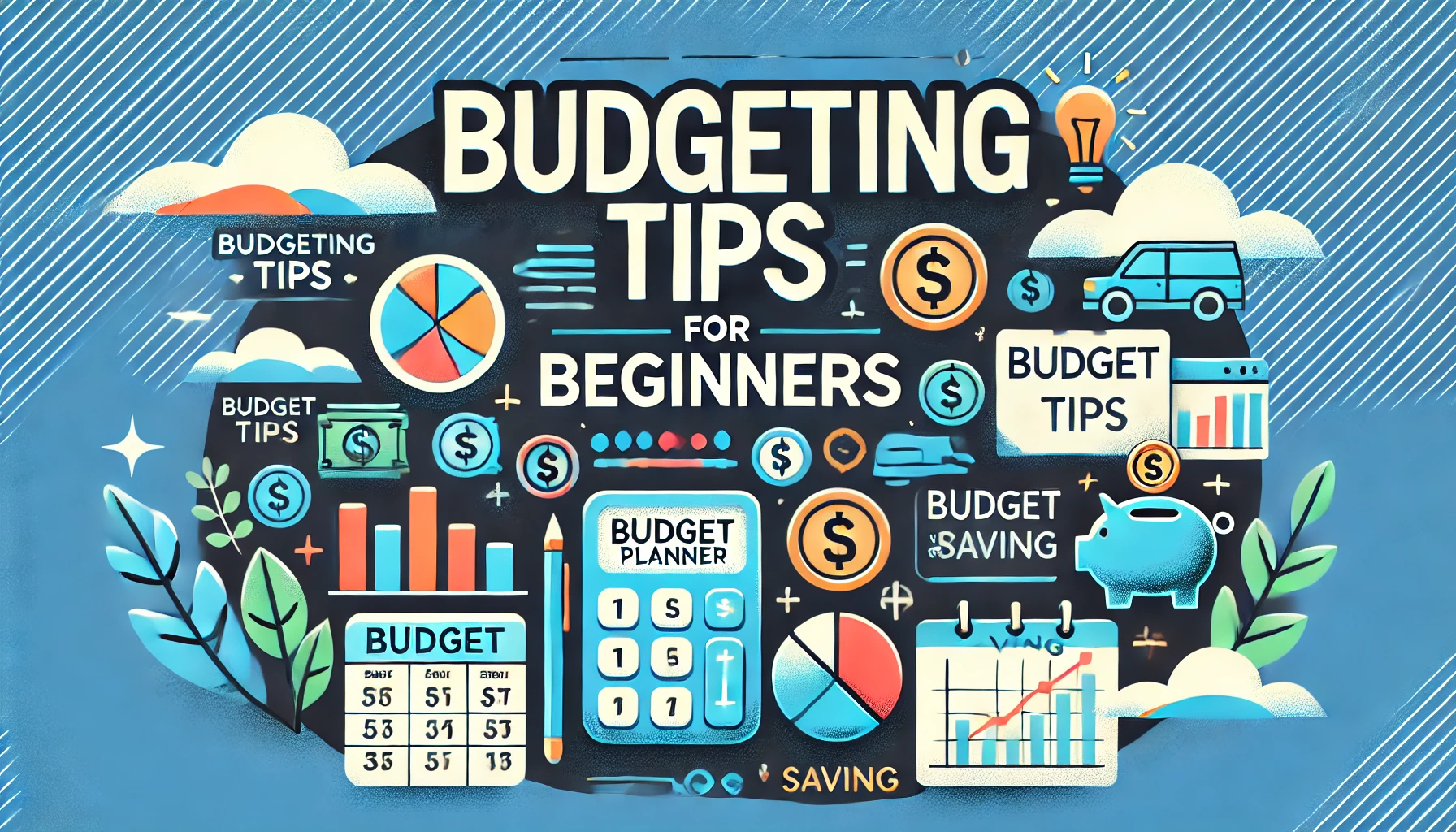Managing your finances doesn’t have to be overwhelming. If you’re new to budgeting, getting started may seem intimidating. But with the right approach, budgeting can be a simple and empowering tool to help you achieve your financial goals.
In this guide, we’ll walk through basic budgeting tips for beginners to help you take control of your money today!
1. Set Clear Financial Goals
Before diving into budgeting, it’s crucial to define your financial goals. Whether you’re saving for a vacation, a new car, or paying off debt, knowing what you want to achieve will make budgeting more purposeful.
- Short-term goals: These are goals you want to achieve in the next 1-2 years, like building an emergency fund.
- Long-term goals: Think 5 years and beyond, like buying a house or retirement.
By setting clear goals, you’ll have a roadmap that makes your budgeting decisions easier and more focused.
Tip: Write down your goals and break them into smaller, manageable tasks. This helps you stay motivated and track your progress.
2. Track Your Income and Expenses
The next step is to understand exactly where your money is coming from and where it’s going. Tracking your income and expenses is key to creating an effective budget.
Income:
- Salary/Wages: Include all sources of regular income (after tax).
- Other income: This can include freelance work, side gigs, or passive income sources.
Expenses:
Categorize your expenses into two main groups:
- Fixed Expenses: These are monthly expenses that stay the same, like rent, utilities, insurance, or subscriptions.
- Variable Expenses: These can change month to month, such as groceries, entertainment, or transportation.
Tip: Use a budgeting app like Mint, YNAB, or a simple spreadsheet to track your income and expenses.
3. Create a Budgeting Plan That Works for You
Once you know your income and expenses, it’s time to allocate your money effectively. The most common and beginner-friendly budgeting method is the 50/30/20 Rule:
- 50% for Needs: This includes essentials like housing, utilities, transportation, and groceries.
- 30% for Wants: These are non-essentials, such as dining out, entertainment, and hobbies.
- 20% for Savings and Debt Repayment: Use this portion to build your emergency fund or pay down any debt.
Tip: If the 50/30/20 rule doesn’t fit your situation, adjust the percentages based on your priorities.
4. Build an Emergency Fund
An emergency fund is a savings cushion to cover unexpected expenses like medical bills, car repairs, or job loss. Having this fund helps you avoid going into debt when life throws a curveball.
Tip: Start small. Aim for $500 to $1,000 to cover minor emergencies. Eventually, you can build it up to 3-6 months’ worth of living expenses.
5. Cut Back on Non-Essential Spending
Once you know your expenses, take a hard look at where you can cut back. Identify areas where you’re spending more than necessary. For example:
- Cancel unused subscriptions (streaming services, gym memberships, etc.).
- Eat out less and try meal prepping.
- Shop smarter by using coupons or buying in bulk.
Tip: Make a list of your non-essential spending and challenge yourself to reduce it by a certain percentage each month.
6. Automate Your Savings
One of the easiest ways to stick to your budget is to automate your savings. Set up automatic transfers to your savings or investment accounts each month.
Tip: Treat savings like a “bill” you pay yourself first, before other discretionary expenses.
7. Review and Adjust Your Budget Regularly
Your budget isn’t set in stone. Life changes, and so do your financial needs. It’s important to review and adjust your budget regularly (at least once a month).
- Are you saving enough?
- Are you overspending in certain categories?
- Are your goals still aligned with your priorities?
Tip: Use your budget review as an opportunity to celebrate wins, like reaching a savings milestone!
Conclusion: Budgeting Made Simple
Starting a budget can seem like a daunting task, but it doesn’t have to be. By following these budgeting tips for beginners, you’ll develop good financial habits that will help you gain control over your money and achieve your financial goals.
Remember, the key to successful budgeting is consistency. It’s not about being perfect—it’s about making progress. So, take small steps, stay committed, and watch your financial confidence grow.
Additional Resources for Budgeting:
- Books on budgeting: “The Total Money Makeover” by Dave Ramsey
- Budgeting apps: Mint, PocketGuard, YNAB
- Financial blogs: The Financial Diet, NerdWallet, Investopedia

Leave a Reply